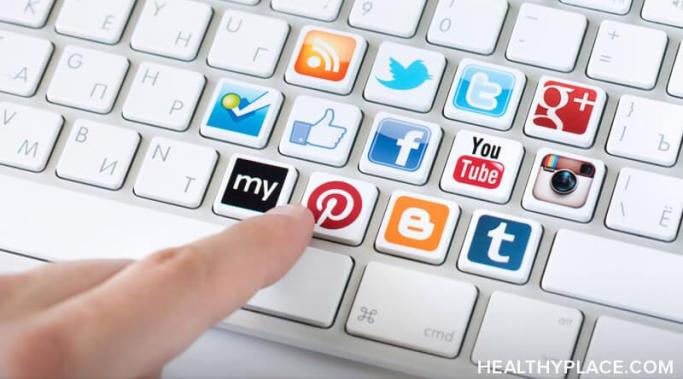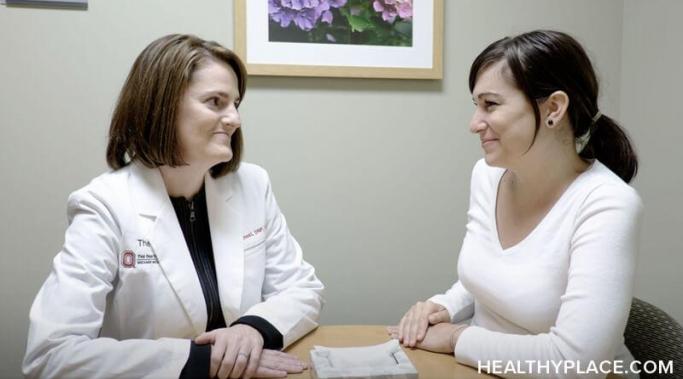Wouldn't you love an anxiety-free day? Is that even possible? While living fully free from anxiety isn’t humanly possible (or even desirable, as anxiety can be a positive force), we all do have the power to make our days less about anxiety and more about mental health and wellbeing. To borrow from solution-focused therapy, what would your day be like if anxiety weren’t a problem? What would you put in its place? How would you live and thrive today without anxiety in the way? Thinking about those answers, let's create your anxiety-free day.
Anxiety-Schmanxiety
Does social media cause anxiety or not? Though social media is often seen as something that provokes anxiety, I find that social media platforms can be useful in alleviating my anxiety symptoms. I am anxious when I see disturbing news or opposing political views on my social media. But having an online support group for my anxiety disorders and my life, post-divorce, has been invaluable to me. For this and many other reasons, I find my social media to be a bit of a double-edged sword regarding anxiety management and knowing whether social media is causing anxiety.
How often do you feel anxiety over time? Do you feel pressured and rushed, anxious because there’s never enough time or because time seems to be flying by too quickly? Time and anxiety are cruel partners, getting in your head and causing worry, even panic. William Penn said it well: “Time is what we want most, but what we use worst.” We want extra time, and when we feel it slipping, we become anxious. The notion that we’re not spending our time well can haunt us, plague us with guilt and cause more anxiety. Even if you’re strapped for time, read on for helpful information.
You can use words as a tool to conquer anxiety by changing the anxiety words in your vocabulary. The saying is true: "The pen is mightier than the sword.” Fighting anxiety, struggling, and thrashing against it keeps your energy and focus on anxiety. But how can you replace fighting -- with your words. Specifically, change the anxiety words in your vocabulary. Changing how you think will change how you act, how you are, and how you live.
Obsessive-compulsive disorder (OCD) doubt and uncertainty is something I've struggled with since I was a young child. Obsessive-compulsive disorder is often dubbed “the doubting disease” because it makes you second-guess yourself. And uncertainty about life can make my anxiety skyrocket. Obsessive-compulsive disorder doubt and uncertainty about life can be debilitating, but I am finding small ways to cope.
It's important to reduce work anxiety because it is interfering with the job success and satisfaction of over half of all working Americans.1 Numbers are likely as high in many other countries, too. Performance anxiety, a sense of perfectionism, generalized anxiety, and social anxiety can all hinder our ability to do well at work. Problems at work because of anxiety lead to more anxiety. As anxiety grows bigger, its sheer size blocks us from moving forward and creating a positive work experience for ourselves. It seems like a never-ending cycle, and when work-related anxiety blocks our way forward, it can feel like we’re doomed to be stuck. Fortunately, this isn’t the case at all. You can reduce work anxiety when it gets in your way.
Anxiety while driving is commonplace for me. Due to generalized anxiety disorder (GAD), my brain magnifies my anxiety while driving. Even driving to a nearby store turns into a worst-case scenario in my mind’s eye. Some of this anxiety seems reasonable. Other fears involve driving activities that don’t distress the average person. When I drive, there is a specific driving anxiety I can’t conquer. I have a fear of getting into a car accident while making left turns in traffic.
If you experience work anxiety, do you find yourself losing sleep over your job, tossing and turning and staring at the ceiling as you ruminate over what went wrong, what you did wrong, and what you will do wrong at work? Do you find it hard to get out of bed because you fear what the workday has in store for you? Maybe you have anxiety attacks even before leaving the house. When you experience any of this, your anxiety casts its evil spell and has you under its control even before you enter your workplace. Starting the day this way is a set-up for yet another daily struggle with anxiety. This battle with work anxiety gets in the way and holds you back from fully doing the job you need and want to do.
Anxiety in romantic relationships, for better or worse, complicates love. I’ve had a variety of significant others. Some partners were supportive of my mental conditions, while others were not sympathetic to any significant degree. I’ve had to deal with many problems, such as rejection and anxiety about the state of my relationships. Though anxiety complicates my romantic relationships, it doesn’t make romance impossible for me.
Is it anxiety or a medical condition? It can be hard to tell because anxiety can feel miserable throughout the entire body, and symptoms can be frightening enough to cause people to wonder if they have anxiety or a medical condition. Not knowing what your symptoms mean can increase existing anxiety or cause new anxieties and worries. Of course, that can worsen physical symptoms and that, in turn, increase worries. Worrying whether you have anxiety or a medical condition can become a vicious cycle of worry, physical discomfort or pain, and worsening mental-- and physical health. Knowing what medical conditions share symptoms with anxiety can help you sort out the healing approach that is best for you.









